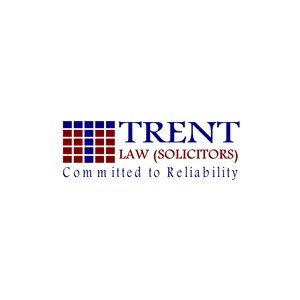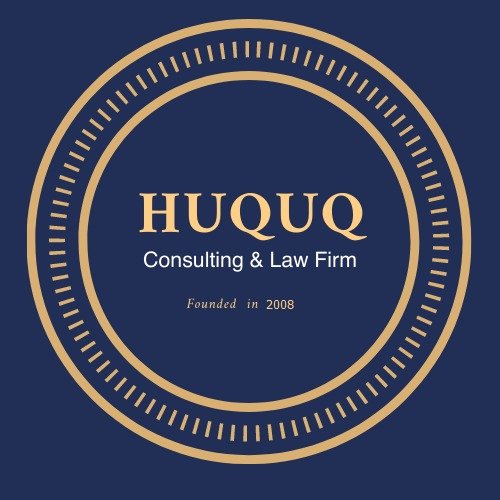Best Antitrust Litigation Lawyers in Sheffield
Share your needs with us, get contacted by law firms.
Free. Takes 2 min.
List of the best lawyers in Sheffield, United Kingdom
About Antitrust Litigation Law in Sheffield, United Kingdom
Antitrust litigation law deals with claims arising from anti-competitive practices, such as price fixing, market sharing, and abuse of dominant positions by businesses. In Sheffield, as in the rest of the United Kingdom, these laws are designed to keep the market fair and to protect consumers and other businesses from unfair restrictions on competition. Cases may involve large corporations, small businesses, or individuals who believe their rights under competition law have been breached. The Competition Act 1998 and the Enterprise Act 2002 are primary pieces of legislation governing this area, with the Competition and Markets Authority (CMA) taking a leading role in enforcement.
Why You May Need a Lawyer
Antitrust litigation is a highly specialised area of law. You may need a lawyer in situations such as being under investigation by the CMA, facing allegations of anti-competitive practices, dealing with business mergers or acquisitions that might reduce competition, or seeking compensation for damages suffered due to unlawful conduct by other companies. Legal help is also important if you wish to report suspected competition law violations or need advice to ensure your business practices comply with the law. A lawyer can provide guidance on your rights, help you respond to investigations, represent your interests in court, and assist in negotiations with authorities.
Local Laws Overview
Sheffield businesses operate under UK competition law, which is harmonised with EU competition rules in many respects. Key laws include:
- The Competition Act 1998 prohibits anti-competitive agreements and abuse of dominant position.
- The Enterprise Act 2002 provides for criminal sanctions against cartel behaviour and governs the control of mergers that may reduce competition.
- The CMA investigates suspected breaches and can impose penalties including substantial fines.
- Private parties harmed by anti-competitive conduct can bring claims for damages in the courts, including in the specialist Competition Appeal Tribunal (CAT).
- Additional sector-specific competition rules may apply, particularly in regulated industries such as utilities and communications.
Frequently Asked Questions
What is antitrust litigation?
Antitrust litigation involves legal action related to alleged breaches of competition laws, such as unlawful agreements between competitors, abuse of market dominance, or cartel behaviour.
How do I know if I have an antitrust case?
If you believe your business has suffered financially because another business has restricted competition or engaged in cartel activity, you may have grounds for a claim. It is best to consult a specialist lawyer for an assessment.
Who enforces antitrust laws in the UK?
The Competition and Markets Authority is the main regulator, though sector regulators such as Ofcom and Ofgem also have powers in their respective industries. Private parties can also bring claims to court or to the Competition Appeal Tribunal.
What penalties can result from breaching competition law?
Breaches can result in hefty financial penalties, director disqualifications, compensation to victims, and criminal sanctions for serious cartel offences.
Can individuals bring antitrust claims?
Yes, individuals and businesses can bring private claims for damages if they have suffered loss due to anti-competitive conduct.
Is there a time limit for bringing an antitrust case?
Yes, generally claims must be brought within six years from the date of the alleged infringement or the date the claimant became aware of the infringement.
What is the process for antitrust litigation?
Typically, you will need to gather evidence of the alleged breach, attempt to resolve matters outside of court where possible, and then commence proceedings in the appropriate court or tribunal with the assistance of legal representation.
Are there costs involved with antitrust litigation?
Yes, litigation can be costly due to the complexity of these cases. Some firms may offer funding options or work on a conditional fee (no win, no fee) basis, depending on the case.
What should I do if the CMA starts an investigation involving my business?
You should seek immediate legal advice to understand your rights, manage communications, and ensure you comply with legal obligations during the investigation.
Can antitrust cases be settled out of court?
Yes, many disputes are resolved through negotiation or settlement before reaching full trial. A lawyer can assist in these discussions to achieve the best outcome.
Additional Resources
If you need more information or assistance related to antitrust litigation in Sheffield, you may find the following resources helpful:
- Competition and Markets Authority (CMA) - The national regulator and enforcer of competition law
- Competition Appeal Tribunal (CAT) - Specialist tribunal for competition law cases
- Citizens Advice Sheffield - Provides general guidance on legal matters and referrals
- Law Society - Use their website to find solicitors specialising in competition and antitrust law near Sheffield
- Sheffield Chamber of Commerce - Can connect local businesses with legal and regulatory resources
Next Steps
If you believe you are affected by anti-competitive conduct or are facing an investigation, consider taking the following steps:
- Document all relevant facts and preserve any evidence of anti-competitive behaviour
- Contact a lawyer or law firm in Sheffield with specific experience in antitrust and competition law for a consultation
- Consider reaching out to the CMA for enforcement questions or to report suspicious activity
- If action needs to be taken, your lawyer will help assess your case and outline options, such as negotiation, settlement or litigation
- Stay informed by reviewing updates on competition law from reputable sources and ensuring your business remains compliant with all relevant legislation
Seeking legal advice early can be critical to protecting your interests and achieving a favourable resolution in antitrust matters.
Lawzana helps you find the best lawyers and law firms in Sheffield through a curated and pre-screened list of qualified legal professionals. Our platform offers rankings and detailed profiles of attorneys and law firms, allowing you to compare based on practice areas, including Antitrust Litigation, experience, and client feedback.
Each profile includes a description of the firm's areas of practice, client reviews, team members and partners, year of establishment, spoken languages, office locations, contact information, social media presence, and any published articles or resources. Most firms on our platform speak English and are experienced in both local and international legal matters.
Get a quote from top-rated law firms in Sheffield, United Kingdom — quickly, securely, and without unnecessary hassle.
Disclaimer:
The information provided on this page is for general informational purposes only and does not constitute legal advice. While we strive to ensure the accuracy and relevance of the content, legal information may change over time, and interpretations of the law can vary. You should always consult with a qualified legal professional for advice specific to your situation.
We disclaim all liability for actions taken or not taken based on the content of this page. If you believe any information is incorrect or outdated, please contact us, and we will review and update it where appropriate.













